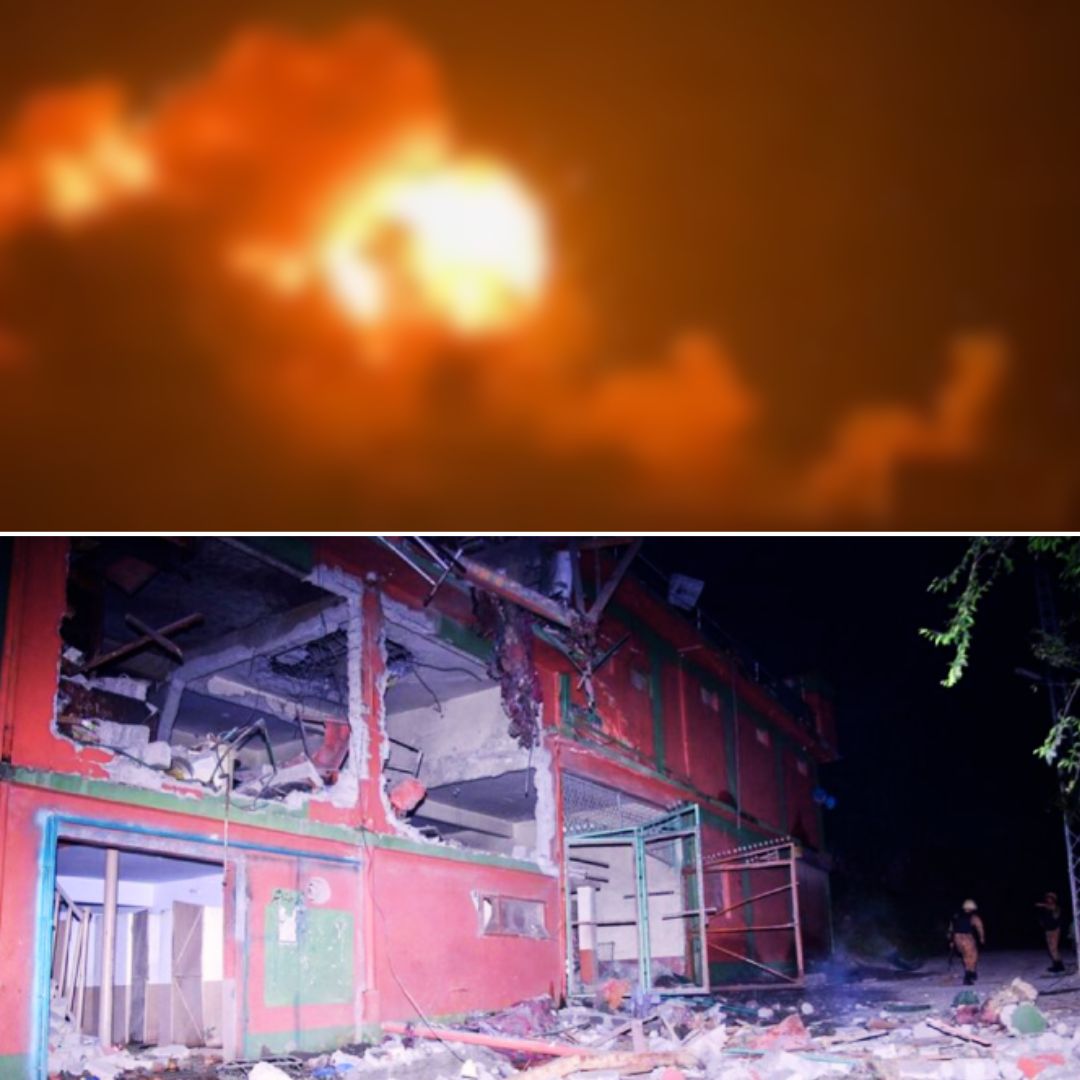At precisely 1:44 am on 7 May 2025, India launched Operation Sindoor, a historic and coordinated tri-service military operation involving the Army, Navy, and Air Force. The operation targeted nine terror camps across Pakistan and Pakistan-occupied Kashmir (PoK), including major facilities of Lashkar-e-Taiba and Jaish-e-Mohammed in Bahawalpur, Muridke, Sialkot, Kotli, and Muzaffarabad.
This action was in direct retaliation for the 22 April Pahalgam terror attack, which killed 26 civilians, mostly tourists. Indian forces used Rafale jets equipped with SCALP missiles and AASM Hammer bombs, alongside kamikaze drones, marking the deepest Indian strike inside Pakistan since the 1971 war.
According to Indian defense sources, over 80 terrorists were eliminated, with 25–30 killed at each of the two largest camps. Officials emphasized that the strikes were precise and measured, avoiding civilian and military infrastructure.
Prime Minister Narendra Modi monitored the operation through the night, with Defence Minister Rajnath Singh coordinating with the three service chiefs. National Security Advisor Ajit Doval briefed US officials soon after, presenting intelligence directly linking the targeted terror camps to the Pahalgam massacre.
Escalation and Pakistan’s Retaliation: Conflicting Claims Emerge
In response, the Pakistan Army violated the ceasefire by launching artillery shelling across the Line of Control (LoC) and International Border (IB), killing three civilians in Jammu and Kashmir.
Pakistan strongly condemned the Indian strikes as an “act of war” and claimed that nine civilians were killed and 38 injured, including in strikes on religious sites in Muzaffarabad. Furthermore, Pakistan alleged it shot down five Indian fighter jets and a drone and destroyed a brigade HQ — claims that India has denied, acknowledging only the loss of one jet and confirming the downing of a Pakistani aircraft over Pampore.
The situation on the LoC remains tense, with power outages reported in Muzaffarabad and continued military activity observed on both sides.
Airspace Closures and Widespread Travel Disruptions
Following the operation and ensuing escalation, the Indian government shut down airports in Srinagar, Jammu, Leh, Amritsar, and Chandigarh, citing national security concerns. This resulted in the cancellation of dozens of flights by Air India, IndiGo, SpiceJet, and others. Some international flights were diverted to Delhi, while others were suspended due to airspace closures over Pakistan.
Qatar Airways and other international carriers temporarily suspended flights to and from Pakistan, advising travelers to monitor developments and reschedule as necessary.
#OperationSindoor This is just a start. Bawalpur struck exactly as per my prediction. More to come. Good morning porkistan. You saw your skies lighted at 1:44 am
— Major Madhan Kumar 🇮🇳 (@major_madhan) May 7, 2025
Pakistani probaganda war starts!
One PAF JF-17 had been shot down in aknoor. pic.twitter.com/osHltimgCi
International Response: Calls for Restraint and Dialogue
The United Nations and major global powers, including the United States, France, and China, have called for maximum restraint to avoid further escalation between the two nuclear-armed neighbors. UN Secretary-General António Guterres emphasized the need for a peaceful resolution, while world leaders urged both nations to maintain open channels of communication.
Ministry of Defence, Government of India: India has launched #OperationSindoor, a precise and restrained response to the barbaric #PahalgamTerrorAttack that claimed 26 lives, including one Nepali citizen. Focused strikes were carried out on nine #terrorist infrastructure sites in… pic.twitter.com/sCGgvxJDPy
— Rahul Shivshankar (@RShivshankar) May 6, 2025
जब तक तोड़ेंगे नहीं, तब तक छोड़ेंगे नहीं।
— Brajesh Misra (@brajeshlive) May 6, 2025
इतने बम मारे कि पाकिस्तान धुआं धुआं हो गया।
भारत माता के वीर जवानों ने पाकिस्तान पर चढ़ाई कर दी है। #OperationSindoor #भारतीयआर्मी pic.twitter.com/T96jga8hKo












